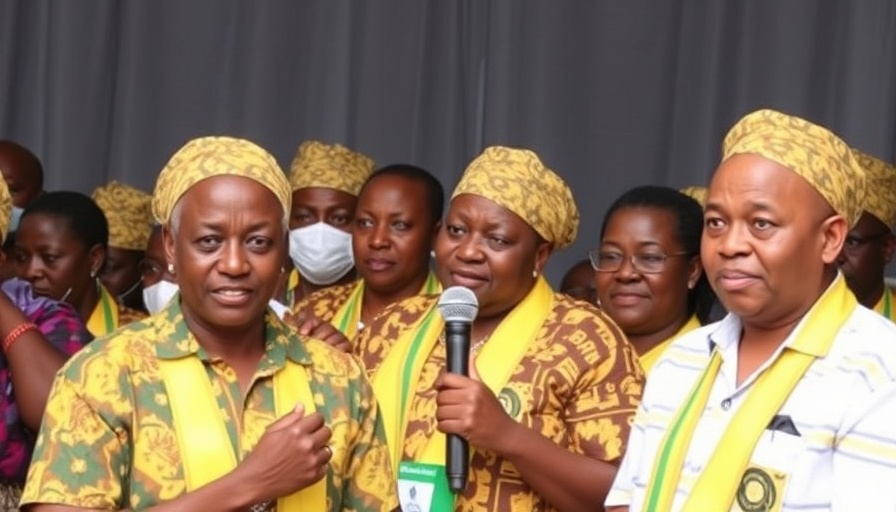
Shaky Foundations: The NRM Primaries and Implications for 2026
The recent National Resistance Movement (NRM) primaries in Uganda have stirred a cauldron of controversy, painting a grim picture of internal party dynamics and foreshadowing the nation’s political landscape as the 2026 elections approach. Amid whispers of violence, deaths, and the troubling phenomenon of missing names from voter lists, this electoral preparation signals deep-rooted issues that could hinder the democratic process.
Uganda has long been under the scrutiny of international observers, especially as it grapples with an economy that shows signs of stagnation amidst a rapidly evolving global landscape. The fallout from the NRM primaries raises essential questions regarding governance and public trust in electoral institutions, aspects critical for foreign investors and policymakers seeking a stable environment to engage with Uganda’s markets.
Electoral Violence: A Trend That Harms Democracy
The violence reported during the NRM primaries is not merely an isolated incident; it underscores a disturbing trend in several African nations where pre-election violence undermines democratic processes. Historical context reveals that such unrest hampers potential investments and stifles economic growth, further isolating vulnerable economies on the global stage.
The Missing Names: A Wake-Up Call for Electoral Reforms
Reports of missing names from voter rolls have raised eyebrows among the political elite, hinting at systemic failures that require urgent redress. For academics and researchers analyzing African electoral systems, this gaps in transparency and accountability present a critical area of study. The consequences of inadequate electoral management can ripple through several sectors, influencing foreign relations and shaping trade policies.
Toward a New Governance Paradigm
As Uganda navigates turbulent political waters, the broader implications extend beyond its borders, impacting Africa’s role in global geopolitics. With the backdrop of diminished trust in institutions, local political dynamics may increasingly attract the attention of international bodies such as the United Nations and the African Union, shedding light on policies that affect African elections and governance.
Conclusion: A Critical Juncture Ahead
For business leaders and investors, the aftermath of these primaries serves as a clarion call to tread carefully in engagement with Uganda’s markets. Policymakers must initiate conversations around electoral reforms to fortify the foundation of democracy. Stakeholders should remain vigilant as the events continue to unfold, understanding that the stability of Uganda has ramifications well beyond its borders, affecting trade, investment, and governance across Africa.
 Add Row
Add Row  Add
Add 


 Add Row
Add Row  Add
Add 

Write A Comment